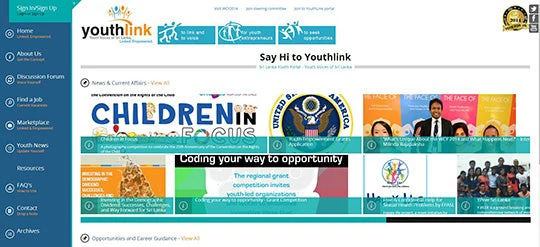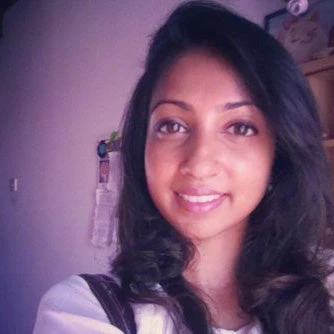
Nearly a quarter of the world’s population today is made up of young people between the ages of 10-24 years. How can young people more effectively voice their opinions and ensure they are heard?
UNFPA’s mandate states that a safe passage from adolescence into adulthood is the right of every child. This right can only be fulfilled if focused investments are made to create opportunities to help them reach their full potential. This year’s theme for World Population Day, “Investing in young people” should be used to increase awareness and drive home this point.
In Sri Lanka, 15.6% of the total population is aged between 15- 24 years. Statistics show that this generation of youth is the most inter-connected in the world’s history. 61% of young people today possess mobile phones in Sri Lanka and this number is continuing to rise. ICT is changing the way the youth communicate and how they access knowledge and share resources.
The World Conference on Youth (WCY) held in Colombo in May 2014, opened my eyes to the immense capabilities of youth both online and offline. I had a unique opportunity to meet young leaders from all corners of the world who were passionately advocating for issues closest to their hearts. The use of social media during the conference was unprecedented, giving young people a unique way of collaborating and connecting. WCY also broke the record for the most live tweeted conference in Sri Lanka.
UNFPA launched a publication at WCY that looked at Sri Lanka as an impressive example of successful youth leadership. The publication showcased eight stories of remarkable young individuals, who displayed exemplary talent, including Thilini, a young female entrepreneur who took the ancient industry of farming into the digital age through the development of a virtual marketplace, and this is just one example. By investing in our youth, we are giving them the platform to showcase and unlock immense untapped potential.
Crowdsourcing campaigns such as the UN's My World 2015 global survey are also gaining immense popularity through online and offline methods. Sri Lanka stands at the top contributing over 550,000 votes entirely from the 16-30 year age group. Once again, these campaigns reflect the tremendous capability of online communications impacting large scale development issues.

Youthlink is a unique example in the sphere of online development for young people. It is a web portal and platform where young people can voice concerns and share ideas on solutions for Youth development mechanisms. As content manager of the website, I experience firsthand the power of these online platforms in bridging gaps between young people and facilitating strong relationships offline. Yet, this alone is not sufficient, and if we want to see real change, we need to facilitate further collaboration and invest in initiatives that give young people a stronger voice.
While young people may sometimes feel marginalized, their collective voices have never been stronger. So speak out and make your voice heard. And for the adults, it is now up to all of us to listen to them and work together for a better future.


Join the Conversation